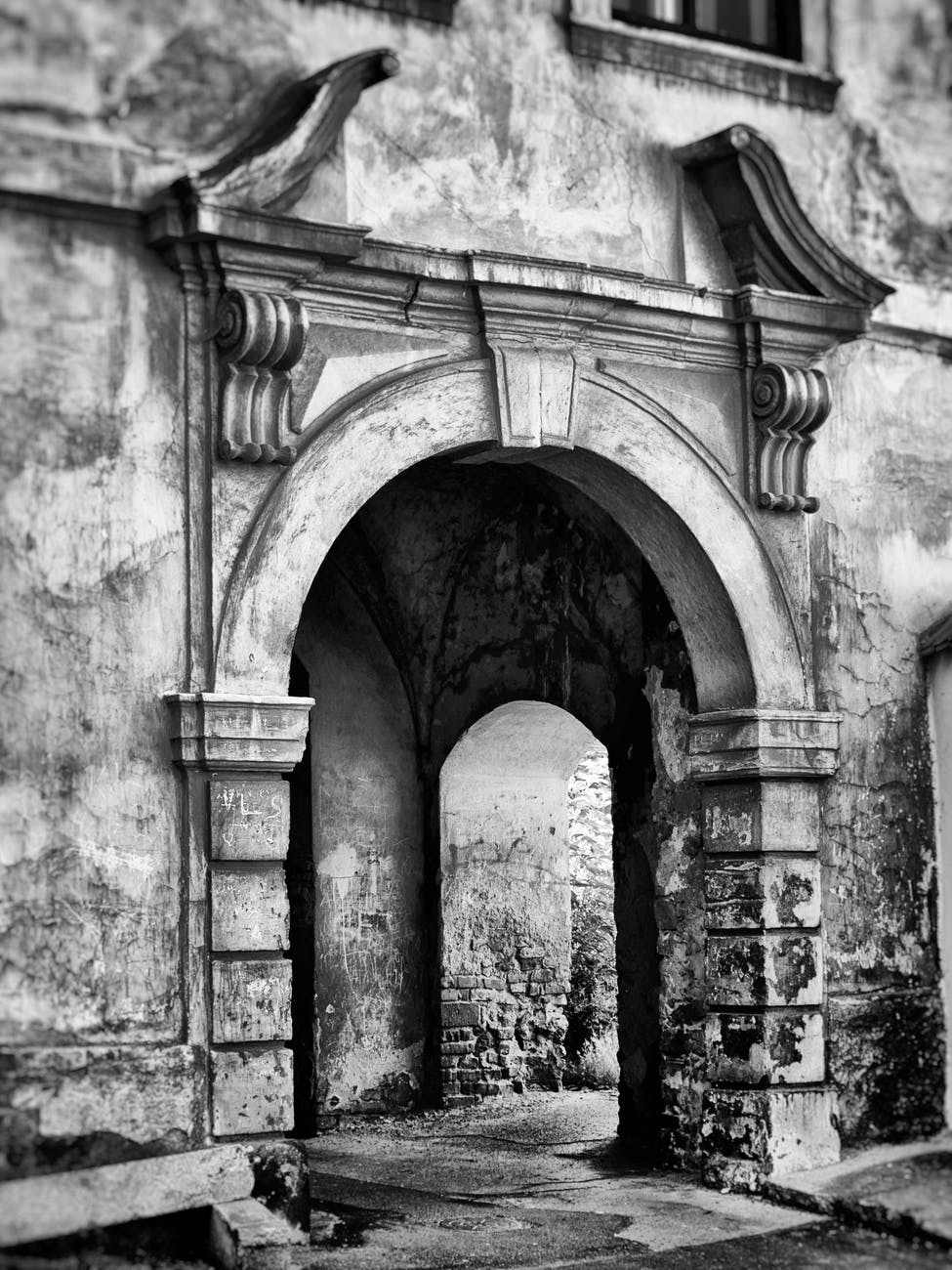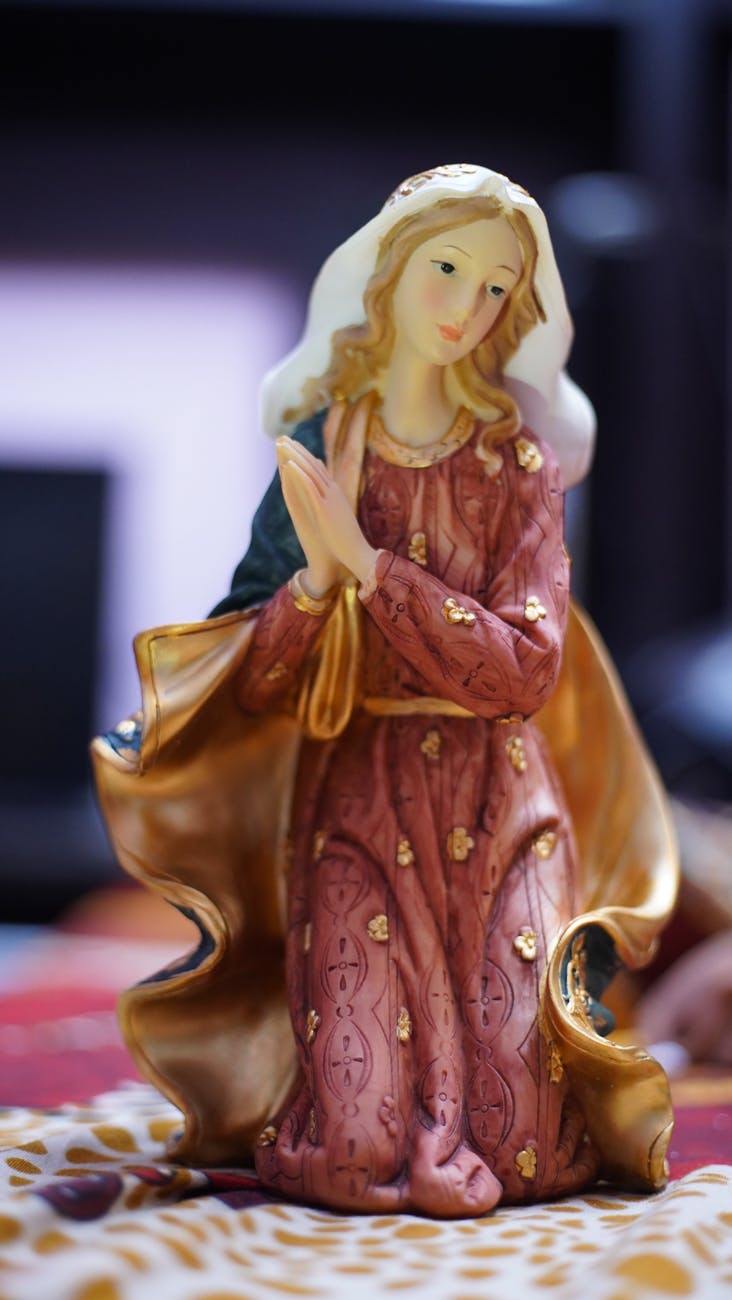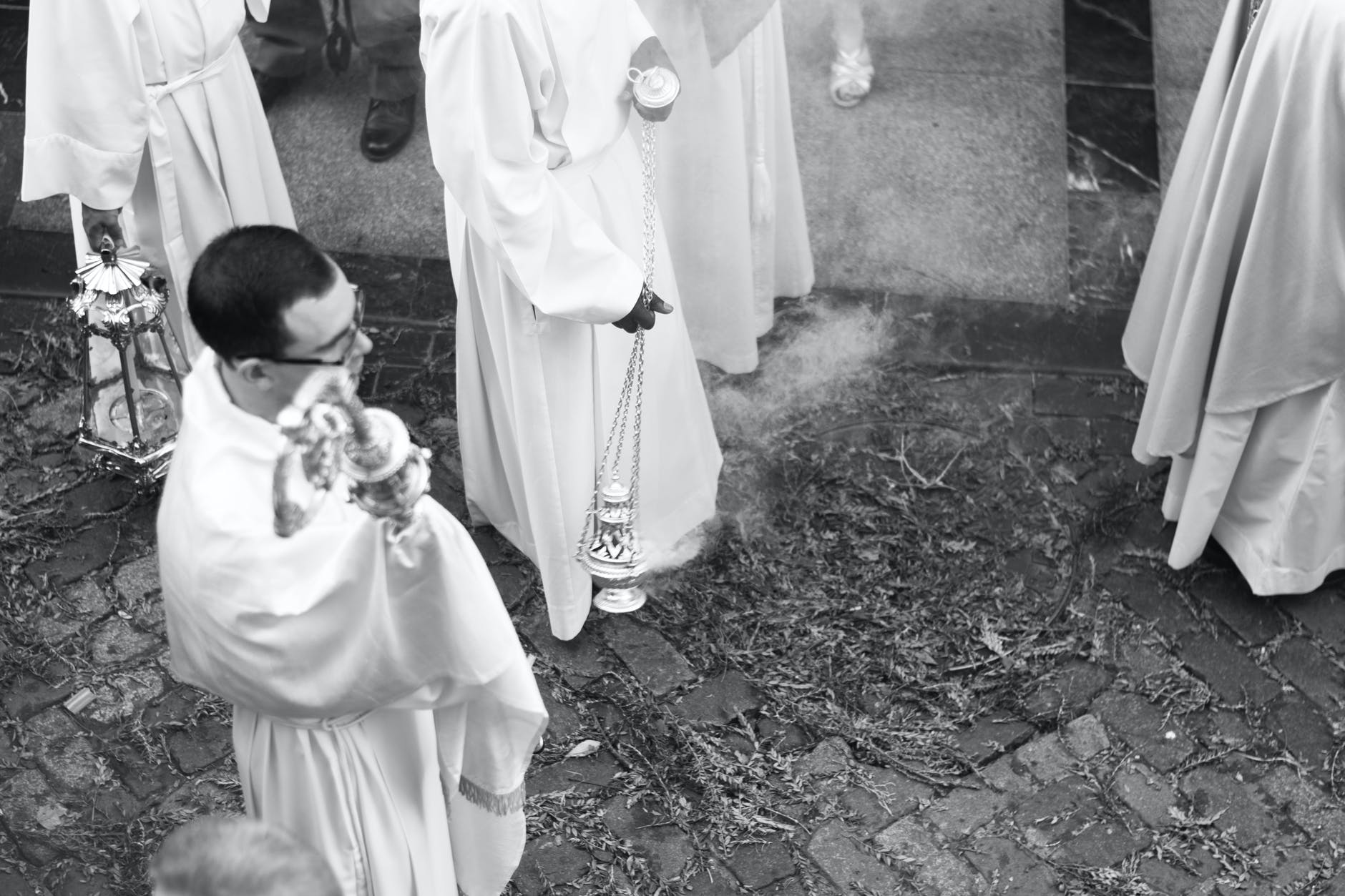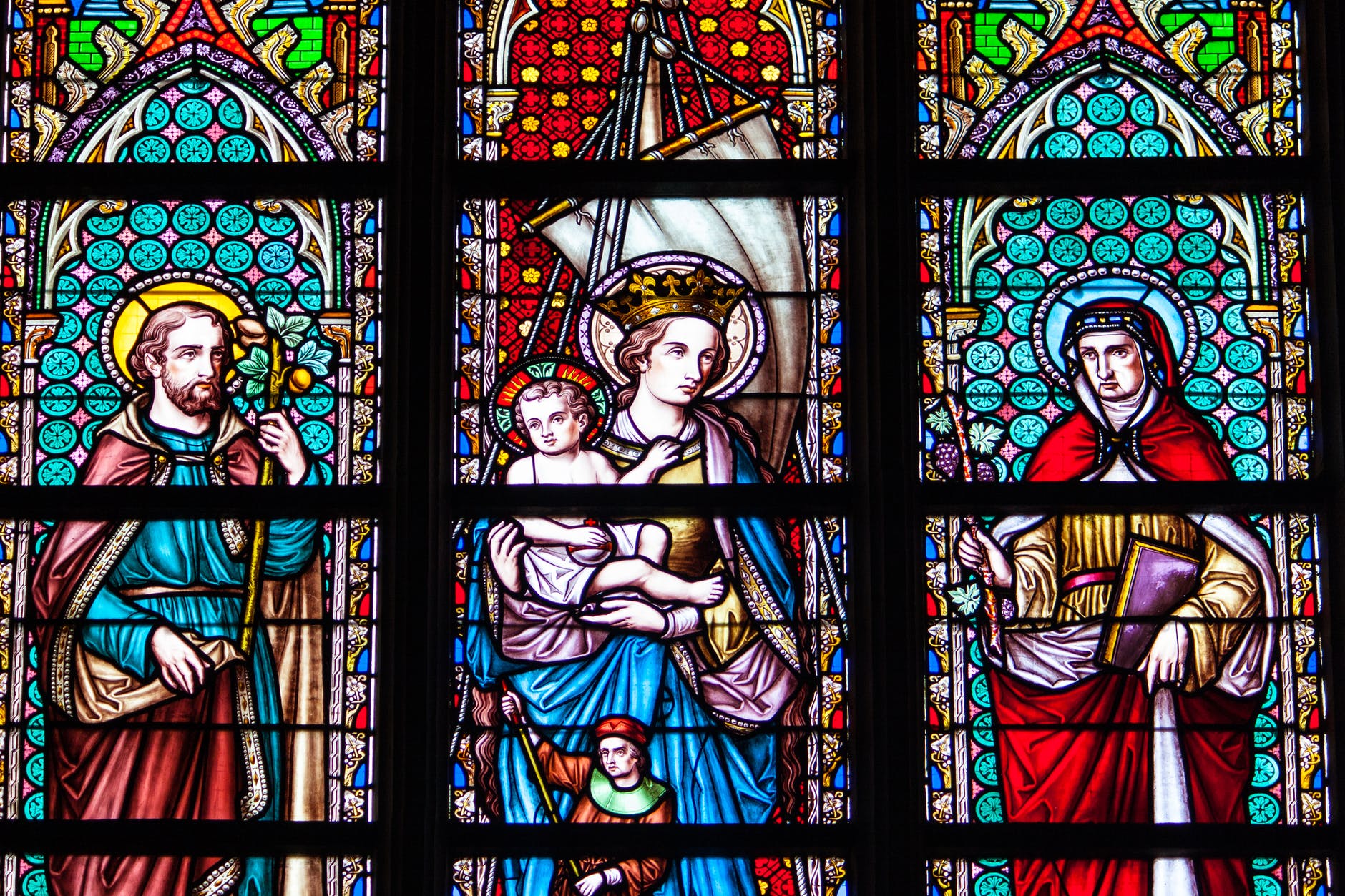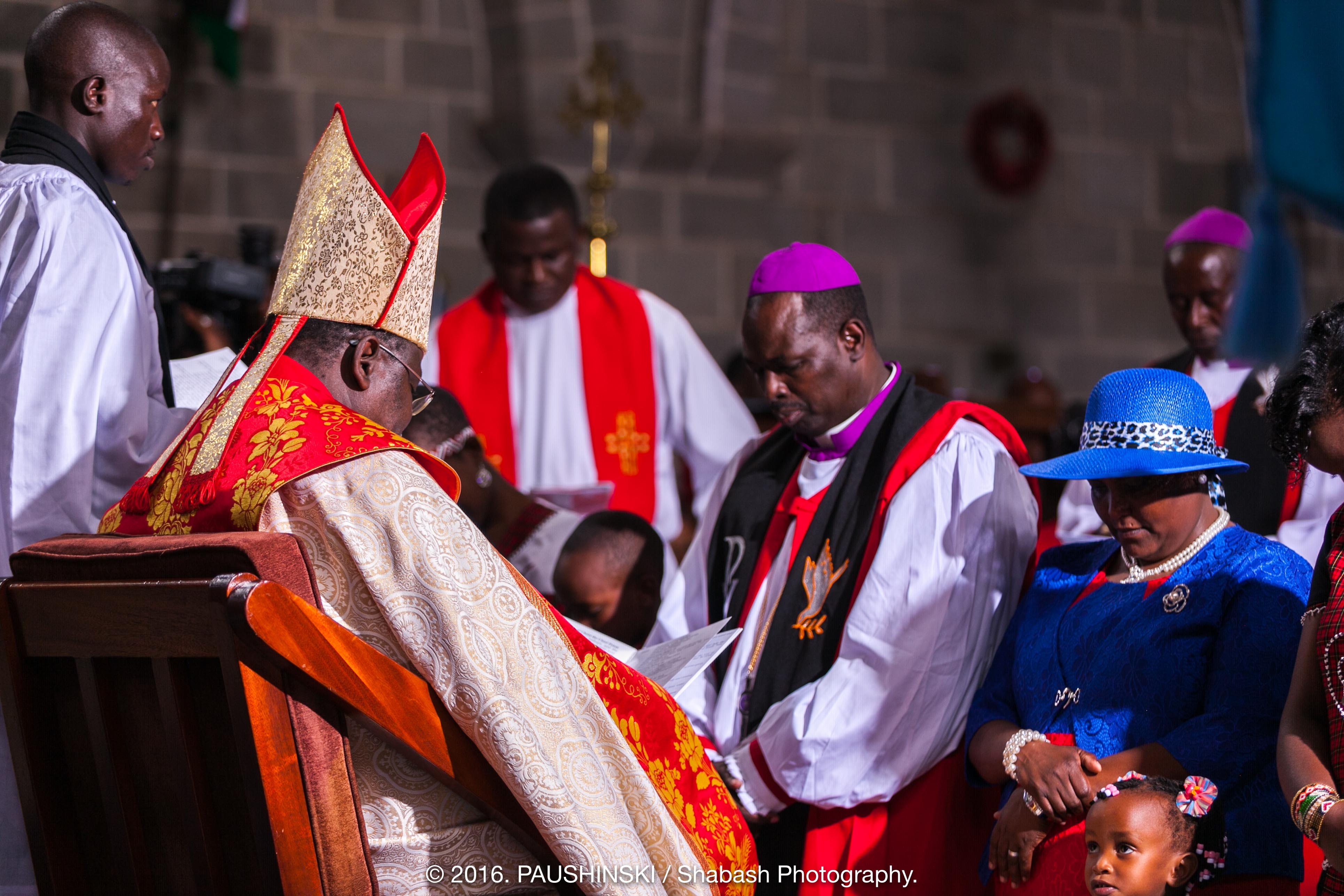Rev. Canon Francis Omondi
SHIFT IN IDENTITY FOR VISIBILITY
The identity and thence the visibility of the ACK is tethered to the Church of England and the Anglican Communion. Hewn from the empires of European Christendom, the ACK is an imperial church[1], marked with domination, hierarchy, patriarchy, and Episcopal structures. The colonial spirit shaped her in the mould of ethnic divisions, exploitation, and snobbism, continues to drive her engines. And this puts the ACK in a bind, and at pains to express her witness in context.
The bedeviling divisions, both between and within our churches, are a signal to a shift away from a modern paradigm of truth, dogma, and correct practices, towards a postmodern one of conversations and constructions of temporary knowledge and truths.[2] This paradigm is wrecking the once imposing edifice of the imperial Anglican church and therefore demanding radical changes in the church for her visibility. Some local Anglican churches, using Article 34- Traditions of the Church Tradition[3], have proposed, and or tinkered with canons and liturgy to enhance their visibility in contexts.
There is, however, a delicate balance we must maintain while making changes. Because one suspect move on our identity initiated by a local church impinges on the rest of the communion. Advocates of changes tend to package their issues as Anglican Communion challenges, that latter emerges as the conservatives-progressives divide. The conservative (GAFCON) in presenting their vision, “Toward a Symphony of Instruments”[4] a structure to advance Anglican coherence in a global south context, eyed as a dose “for the well-being of our Anglican Communion.” But behind their readiness to jettison the Episcopal jurisdiction, which they termed a “mere geographical location,” lay the craving to isolate enclaves of “orthodoxy” in the progressive bastions. This is a contradiction and a departure from Anglican orthodoxy (see Executive Summary §4). While the progressive’s vision for the communion lays in “The Anglican Covenant”[5]. They remain broad, affirming the ecumenical vision of the Church, entered through the baptismal door (Intro §§1-3); celebrates difference among Anglicans (Intro. § 4); acknowledges vulnerability, and reaches for God’s help. They believe in God’s “will redeem our struggles and weakness” and “renew and enrich our common life” (Intro. §8; see more 2.1.3).
The ACK should disentangle herself from the shackles of this binary tussle. She should not either align with the progressives, seeking to blend the church’s visibility to their changed context, or against the conservatives, aspiring to uphold traditional values as was. It is possible to be pawns in this conflict, while the ACK’s local challenges remain unattended. The ACK should instead take advantage of the postmodern mood to spur the Anglican Communion into new frontiers of challenges. Challenges more urgent, more pressing, and vital for her visibility in context.
The ACK visibility is being ravaged from inside by the effects of a “post-Christian” era, a typical sign of a postmodern age. There is immense concern about Anglicans, who for varied reasons, have left institutional Christianity. Others hold on as Christians, but no longer want to belong to it alone, they share allegiance with competing groups. Many of them are reverting to African Traditional Religious practices[6], to meet certain spiritual and social needs. They have judged the institutional Christianity to be irrelevant to their daily struggles. For this and many reasons, they do not look up to the church for moral guidance. Besides, the ACK which fought for justice and the liberation of the oppressed has become voiceless, powerless, and not as organised as she once was regarding the challenges that society faces today, such as poverty, corruption, violence, and crime.
The forecast on the social and economic impact of the coronavirus will overwhelm weaker economies, with fragile social safety nets for the population. The faithful Kenyan Anglicans will strain to prop up this Church. A Church built with imperial concrete on sinking sand of poverty. Such a structure designed for the empire, loaded with dogmas, systems and traditions, incongruent with scriptures, and in desperate need of support and foreign aid, will not stand. Not for long. Besides, ACK does not have the backing of market capitalism and liberal democracy other western countries of the communion have. But all these will be strained under the pressure and ravages of the coronavirus.
Perhaps, the good to come out of this period, might be an awakening to the pre-existing conditions of our religious decay. We were not as healthy as we made it to appear. Apart from being medical COVID-19 is to a greater extent a social virus that will eviscerate the Anglican church as we know it today. We will wake into an unfamiliar world from this Pandemic. How shall we mitigate against extinction?
Scientists would not look backward in choosing, from among existing theories when searching, for alternatives. They seek “the fittest way to practice future science” (Kuhn 1970 pp. 172), and therefore base their decision not on information about previous contributions but based on the expected value of their prospective contribution to a paradigm.
In an enthralling narrative on why civilisations die, Rebecca Costa[7] recounts how when societies reach a cognitive threshold they can’t chart a path from the present to the future. The hit a gridlock. And there they would die off. She explains that the fall occurs because problems became too many and complicated for the people of that time and place to solve. Such cognitive overload can happen to any system and may already be happening to the Anglican Church.
Rebecca, therefore, gives two signs for the breakdown. First, there is gridlock. Instead of dealing with what everyone can see are major problems, people continue as usual and pass their problems on to the next generation. Then as there is a retreat into irrationality. For facts no longer make sense, and people take refuge in religious consolations.
How Judaism endured and survived the atrocities of the Roman empire, is a lesson for us today. The Jews made a remarkable response after the destruction of the Second Temple (70 CE).[8] Faced with the loss of the entire infrastructure of the holy, the Temple, its Priests, and sacrifices, Rabbi Jonathan Sacks[9] explains, Judaism translated the entire system of divine service into the everyday life of ordinary Jews. “In prayer, every Jew became a Priest offering a sacrifice. In repentance, he became a High Priest, atoning for his sins and those of his people. Every synagogue, in Israel or elsewhere, became a fragment of the Temple in Jerusalem. Every table became an altar, every act of charity or hospitality, a kind of sacrifice”, Sacks elaborates.
The Jews did not abandon the past. But they did not cling to it either. They refused to take refuge in irrationality. But they, as Sacks observes, “thought through the future and created institutions like the synagogue and houses of study and schools that could be built anywhere and sustain Jewish identity even in the most adverse conditions.” Judaism has always survived, unlike other world civilizations in one sense because of Divine providence, but Sacks attributes it also to “the foresight of people like Rabban Yochanan ben Zakkai[10] who resisted cognitive breakdown, created solutions today for the problems of tomorrow, who did not seek refuge in the irrational, and who built the Jewish future.”
Our crisis presents us with the incentive to desire a new paradigm, and to invite others to the benefits it proffers. Kuhn (1970, pp. 152) described shifts in paradigm allegiance as a conversion experience driven by the efforts of individual scientists to persuade each other.
As Anglicans, we must contemplate worst-case scenarios. Plan generations ahead. Ask what we would do, if… What saved the Jewish people, Rabbi Sacks concludes, “was their ability…. never to let go of the rational thought”, and refusing to let their loyalty to the past, to come in the way of their future, they kept planning for the future.
It is during a crisis such as this that new ideas, perhaps ones previously discarded, are tried, argues Kuhn. But eventually, a new paradigm is formed, which then gains its new followers, and that triggers an intellectual “battle” between the followers of the new paradigm and the hold-outs of the old paradigm.
Towards a New Paradigm: Priesthood to all believers
We should make all Confirmed Christians be priests. Thus, give them the authority to serve in the priestly role in church liturgy, sacraments, and witness. To incorporate lay Christians into the priesthood, will best realise our belief in the priesthood of all believers, a vision ACK holds for Christians in divine service. And it states:
Lay persons form by far the greater part of the body of Christ. They cannot walk worthily in their high calling, unless they realize that they too are sharers in the heavenly high priesthood of Christ, and that this sharing must find expression in holiness, in witness, and in loving service of others (ACK. Const. 2002 Article VI: #7).
Laity is already leading in liturgy services. This change should permit them not only to offer prayers but also to grant absolution for the confessants, pronounce blessings on God’s people, and give last rites for the dying.[11] Also, they should administer sacraments of baptism[12] and Eucharist.
Making all believers priests would more reflect the scriptural ideal of God’s “Kingdom of Priests and a holy nation” than the present practice. Christians need to realise their calling as in Leviticus (19: 1-2) “Speak to the entire assembly of Israel and say to them, ‘Be holy because I the Lord your God am holy.’” The New Testament, affirms that all believers in the priesthood of the New Covenant:
“ You also, as living stones, are being built up as a spiritual house for a holy priesthood, to offer spiritual sacrifices acceptable to God through Jesus Christ.… But you are a chosen race, a royal priesthood, a holy nation, a people for God’s own possession, that you may proclaim the excellencies of Him who has called you out of darkness into His marvelous light (1 Pet. 2:5, 9).
And He has made us to be a kingdom, priests to His God and Father; to Him be the glory and the dominion forever and ever. Amen (Rev. 1:6).
Rabbinic Judaism emerging out of the devastating tragedy of the loss of the Temple, created a religious and social order that achieved this vision of the people as “a kingdom of Priests and a holy nation”. Their leaders made Priesthood the right and obligation of every Jew. Should we not do the same to Christianity more so, to our Anglican church?
With all believers as priests, their lives would turn into God’s service in society. All believers will be more aware of themselves as the community of the Kingdom of God, now scattered in homes fragments of the divine sanctuary. Yet in these small shards, the believers gather to encounter God upon whom they wholly depend. And as explained by Niringiye (2014 pp. 21), “the visibility of the community is in its gathering… in Jesus’ name”. They will engage in God’s service through prayer. And make sacrifices by acts of charity, create sacred fellowship by hospitality with every table would become an altar for offerings unto God. Hence, the community of believers would exist as a divine sign pointing to the reality beyond, at the same time reflecting the glory of Christ in the present. Christians, now priests, would in the vision of bishop Newbigin, be the instruments through which God carries His will for justice, peace and freedom in the world, and as a foretaste of the presence of the Kingdom.[13]
We must transform institutional church structures into instruments to equip all believers for service. They should be centers for Christian education. Where we train our children in our faith, giving them tools to thrive as Christians in the world. Using our church infrastructures as centers for Christian learning would in effect reorient our priests to actualise their role as teachers and instructors of the faith. Equipping believers, though guiding them in understanding the holy texts and doing theology, will stir the development of fresh liturgy and visibility. Christian theology encourages an engaged spirituality, which lives out its theological convictions in social life. An engaged spirituality seeks to be true to the essence of theology, which St Anselm of Canterbury (11th century) defines as fides quarens intellectum — faith in search of understanding.
What the ACK should discover, is not the proclaiming of a timeless universal truth, but the listening to God’s involvement in the stories of the local community. The church ought to recognise that it is in opening herself up that she would experience a truly radical transformation. A true transformation is a gift of listening to the traces of God’s involvement among us, which brings about liberation and thus creates a space for impossible possibilities. And these are the true transformation.
We can achieve for the Anglican Church what the prophets, the sages, and the Jewish thinkers of the Middle Ages accomplished for Judaism. They realised that sacrifices were symbolic enactments of processes of the mind, heart, and deed that could be expressed in other ways. Torah study, once the specialty of the Priesthood, became the right and obligation of everyone. Sacks [14]concludes, not everyone could wear the crown of Priesthood, but everyone could wear the crown of the Torah. Judaism, therefore, transformed to cope with new contexts they found themselves in.
In Kuhn’s philosophy, deciding to reject an old paradigm for the new, remains an important aspect. He is clear that the rejection of one paradigm without simultaneously substituting another is to reject science itself. It is the comparison of both paradigms with nature and with each other, that would lead to the decision to shift. Kuhn (1970, pp. 152) described shifts in paradigm allegiance as a conversion experience driven by the efforts of individual scientists to persuade each other. Our present crisis demands a new paradigm. This paper suggests a new paradigm for the ACK. We must examine and consider it for the Anglican church also. How we persuade the Anglican Communion to join in, abandon the old structure and benefit from fresh ideas is another matter. According to Kuhn, the development of science is not uniform but has alternating “normal” and “revolutionary” (or “extraordinary”) phases. Kuhn perceived that most scientists engage in activity consistent with the prevailing paradigm with reasonably small alterations, put differently normal science. But they encounter anomalies the paradigm cannot resolve some individuals may step out of the paradigm and propose new principle or law. If the proposed changes are accepted in the scientific community, then the science experiences a paradigm shift. It follows then that the new science initiates a new paradigm.
CONCLUSION
As the coronavirus crisis reveals and amplifies the awareness of our social fractures, we will expect the Church to be a part of finding long-term solutions. And questions will be asked of her actions.
The ACK is in a liminal space concerning her visibility. A space of being in transition. She must open herself to listen and search for God’s involvement in the world. It is by being in conversation and interpreting God’s involvement that she will be in the transition, from an institution founded on truths and established practices, to an open community, vulnerable, and exposed to the impossible possibilities of Christ’s presence, outside traditional places (cf. Matt. 25).
We are yet to understand the impact of this pandemic, it may be worse than we are projecting. There are crises because of violence affecting Christians, who have not gathered to worship, nor had sacraments for a long time. We will face more challenges. Should we just contemplate worst-case scenarios? Plan generations ahead. Ask what we would do, if… What saved the Jewish people, Rabbi Sacks concludes, was their ability never to let go of rational thought, and refusing to let their loyalty to the past, to come in the future’s way, they kept planning for the future.
If ACK and the Anglican Church adopts this proposal, any future suspension of physical public gathering would not affect her visibility. Christians would continue to hear God’s word read or preached, and to receive the sacrament in another way. This will then be a Church that has opened herself to the paradigm shift.
Published as:
Visibility of The Church in the Wake of COVID-19: The Case of the Anglican Church of Kenya
References:
Aloo O. Mojola, 2020: Utu, Ubuntu and Community, Reimaging and Celebrating the Web of life and the dignity and worth of all humans: Nairobi, Tafsiri Press.
Andrew N. Porter, 2003, The imperial Horizons of British protestant missions, 1880-1914 : Grand Rapids MI. Eerdmans Publishing.
Barbara W. Tuchman, 1979: A Distant Mirror: The Calamitous 14th Century; New York. Alfred A. Knopf, Inc.
David Z. Niringiye, 2014: The Church, God’s Pilgrim People; Carlisle. Langham Global Library.
E. Lesslie Newbigin, 1988: “On being the Church in the World”, The parish Church? Exploration in the Relationship of the Church and the World (ed. G. Ecclestone; Oxford: Mowbray).
Paul Tiyambe Zeleza Malawi, March 2020: https://www.theelephant.info/op-eds/2020/03/25/the-coronavirus-the-political-economy-of-a-pathogen/. Accessed 9 May 2020
Jonathan Sacks, 2019: Tzav 5771. covenant & conversation Torah digital for Office of the Chief Rabbi. Accessed 7 May 2020.
________ http://rabbisacks.org/covenant-conversation-5771-tzav-why-civilizations-die/ Accessed 7 May 2020.
_______ http://rabbisacks.org/wp-content/uploads/2019/04/CC-5779-From-Priest-to-People-Kedoshim-5779.pdf Accessed 7 May 2020
Rebecca D. Costa, 2010: The Watchman’s Rattle, A Radical New Theory of Collapse, Philadelphia PA. Vanguard Press.
The Anglican Church of Kenya, Constitution 2002, Nairobi Uzima Press.
The Anglican Church of Kenya, Our Modern Services, 2012 Nairobi Uzima Publishing House.
Thomas S. Kuhn 1968, 1970: The Structure of Scientific Revolutions, Chicago: University of Chicago Press
William John Torrance Kirby, The Doctrine of the Royal Supremacy in the Thought of Richard Hooker: Christ Church, Oxford. A Thesis submitted for the degree of Doctor of Philosophy in the University of Oxford
Trinity Term, 1987.
Williams, Rowan, ‘Is there a Christian Sexual Ethic?’, in Open to Judgement: Sermons and Addresses (London: Darton, Longman & Todd, 1994), pp. 164 Google Scholar. Accessed 9 May 2020.
NOTES:
[1] Description by Andrew N. Porter in The Imperial Horizons of British Protestant Mission shows how “Christianity became not only the ‘state’ religion but an imperial religion.”
[2] Prof. Aloo O. Mojola, 2020 pp. 177: Modernity, Post-modernity and the information age: Prospects and Challenges for African Theological education in the twentieth century, in “Utu, Ubuntu and Community, Reimaging and Celebrating the Web of life and the dignity and worth of all humans”: Nairobi, Tafsiri Press.
[3] It is not necessary that traditions and ceremonies be in all places one or utterly alike; for at all times they have been diverse, and may be changed according to the diversity of countries, times, and men’s manners, so that nothing be ordained against God’s word.
[4] https://www.anglicancommunion.org/media/209979/Towards-a-Symphony-of-Instruments-Web-Version.pdf
[5] https://www.anglicancommunion.org/media/99905/The_Anglican_Covenant.pdf
[6] ACK Diocese of Mt. Kenya South report 2015 on “Kiama kia Athuri” The committee Synod: Min. Synod /15/10/4.
[7] Rebecca D. Costa 2010: The Watchman’s Rattle, A Radical New Theory of Collapse, Philadelphia PA. Vanguard Press.
[8] Jews came under Roman rule between Pompey’s conquest in 63 BCE and the collapse of the Bar Kochba rebellion in 135 CE.
[9] http://rabbisacks.org/covenant-conversation-5771-tzav-why-civilizations-die/
[10] Rabban Yochanan ben Zakkai comforted Rabbi Joshua, who wondered how Israel would atone for its sins without sacrifices, with the words, “My son we have another atonement as effective as this: acts of kindness, as it is written (Hosea 6: 6), ‘I desire kindness and not sacrifice’” (Avot deRabbi Natan 8).
[11] Because there were so many ill, during the C14th. black death and so few priests remained as the disease progressed, Clement VI declared that the dying could make their confession to anyone present – “even to a woman”, said an English bishop (Tuchman, p.94) – and that it would still lead to salvation. This was a big deal for the Church, as previously only the clergy were permitted to perform last rites.
[12] This is already applicable in an emergency, full communicants other than a priest may baptize. (OMS 2002: 43)
[13] J. E. Lesslie Newbigin, “ On being the Church in the World”, The parish Church? Exploration in the Relationship of the Church and the World (ed. G. Ecclestone; Oxford: Mowbray, 1988) 25-42
[14] http://rabbisacks.org/covenant-conversation-5771-tzav-why-civilizations-die/


